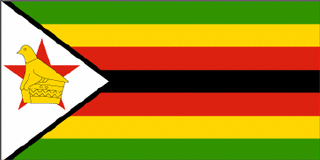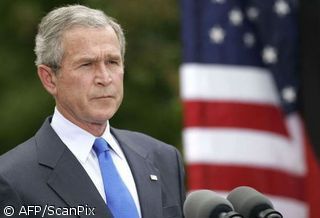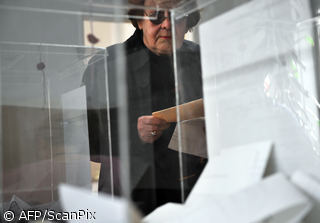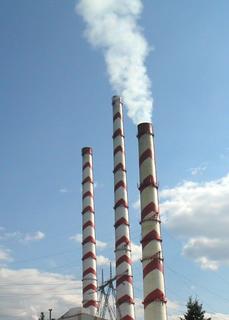Future gangster is "Don Corleone behind a laptop".
Published:
8 September 1999 y., Wednesday
In the next decade, the world_s crime fighters say they will fight international organized crime on several fronts, battling financial fraud, corruption, the sale of human beings for sex and labor and the trafficking of weapons of mass destruction. The focus of a three-day crime-fighting conference at Garmisch-Partenkirchen (Germany) sponsored by the FBI and the George C. Marshall European Center for Security Studies was touted in advance- as an assessment of organized crime_s impact on national security. But the meeting of American, European and Eurasian top brass ended Thursday with little open discussion of such forecasts. Organizers admitted the conference fell short of that objective, but said other goals had been achieved, namely the forging of new East-West relationships between law enforcement officials. One senior U.S. law enforcement official involved in planning the event told APBNews.com it was difficult to get officials from the former Soviet republics to open up and discuss their problems and worries over mobsters operating in their fledgling democracies. Author and criminologist Joseph Albini, of Indiana_s Wayne State University, said he estimates that as early as 2000, more than 90 percent of those involved in organized crime will be computer literate on some level. "The conception of Don Corleone [from the "Godfather" movies] smoking a cigar is better seen as Don Corleone behind a laptop," he said. It is the access to mass media information and the technology boom that are changing the face of mobsters from thugs to super-criminals, Albini said. Kulikov echoed that view. "We are at the threshold of a new millennium. We have to be prepared for the emergence of new types of criminal activity," including technological, he said. The retired Russian general clicked off a number of examples, including trafficking illegal genetically-engineered human organs and crop seeds. A senior intelligence officer from Great Britain who specializes in organized-crime analysis said tomorrow_s gangsters almost certainly will be consumed with electronic commerce, particularly online gambling, credit card fraud and virtual banking, where a financial institution exists solely in cyberspace. Another possibility, he said, is the theoretical notion of virtual-reality narcotics, which assumes it is possible to transmit a digital "stimulant" or hallucinogen across the Internet, creating a new form of addiction. "Biotechnology and information technology are the two biggest revolutions of this century, and we should look at each of them and see where the potential for money is from the criminal point of view," the official told APBNews.com, requesting anonymity.
Šaltinis:
APBNEWS.COM
Copying, publishing, announcing any information from the News.lt portal without written permission of News.lt editorial office is prohibited.
The most popular articles
 For the last 15 years European citizens living in another European country have been able to vote in that country's local and European elections.
more »
For the last 15 years European citizens living in another European country have been able to vote in that country's local and European elections.
more »
 Zimbabwe is suffering from cholera.
more »
Zimbabwe is suffering from cholera.
more »
 Metropolitan Kirill will head the Russian Orthodox Church temporarily following the death of Patriarch Alexiy II on Friday.
more »
Metropolitan Kirill will head the Russian Orthodox Church temporarily following the death of Patriarch Alexiy II on Friday.
more »
 U.S President George W. Bush celebrates his final Christmas in office - the lighting of the National Christmas tree.
more »
U.S President George W. Bush celebrates his final Christmas in office - the lighting of the National Christmas tree.
more »
 Under new draft laws, people travelling by bus and ship would enjoy the same rights as those taking a plane or train, including the right to meals, hotel accommodation and alternative services if the trip is cancelled or interrupted.
more »
Under new draft laws, people travelling by bus and ship would enjoy the same rights as those taking a plane or train, including the right to meals, hotel accommodation and alternative services if the trip is cancelled or interrupted.
more »
 The importance of individual happiness, which can be achieved with the help of universal human values - whether religious or non-religious - was one major theme in an address by the 14th Dalai Lama to the European Parliament on Wednesday.
more »
The importance of individual happiness, which can be achieved with the help of universal human values - whether religious or non-religious - was one major theme in an address by the 14th Dalai Lama to the European Parliament on Wednesday.
more »
 Although the European Parliament is now much more powerful than when it was first directly elected in 1979, voter turnout for elections has declined steadily, reaching a new low in 2004.
more »
Although the European Parliament is now much more powerful than when it was first directly elected in 1979, voter turnout for elections has declined steadily, reaching a new low in 2004.
more »
 The free tours are run by Sandemans New Europe - set up in 2004 by Chris Sandeman, who chose tourism over his family's traditional sherry business.
more »
The free tours are run by Sandemans New Europe - set up in 2004 by Chris Sandeman, who chose tourism over his family's traditional sherry business.
more »
 Eighteen months after it began work, Parliament's Temporary Committee on Climate Change called for an 80% cut in greenhouse gases by 2050, binding interim targets to improve energy efficiency 20% by 2020 and incentives to encourage everyone to do their bit.
more »
Eighteen months after it began work, Parliament's Temporary Committee on Climate Change called for an 80% cut in greenhouse gases by 2050, binding interim targets to improve energy efficiency 20% by 2020 and incentives to encourage everyone to do their bit.
more »
 Israeli experts are using good old mathematical models to give a face in a photo the ideal characteristics in just a few mouse clicks.
more »
Israeli experts are using good old mathematical models to give a face in a photo the ideal characteristics in just a few mouse clicks.
more »